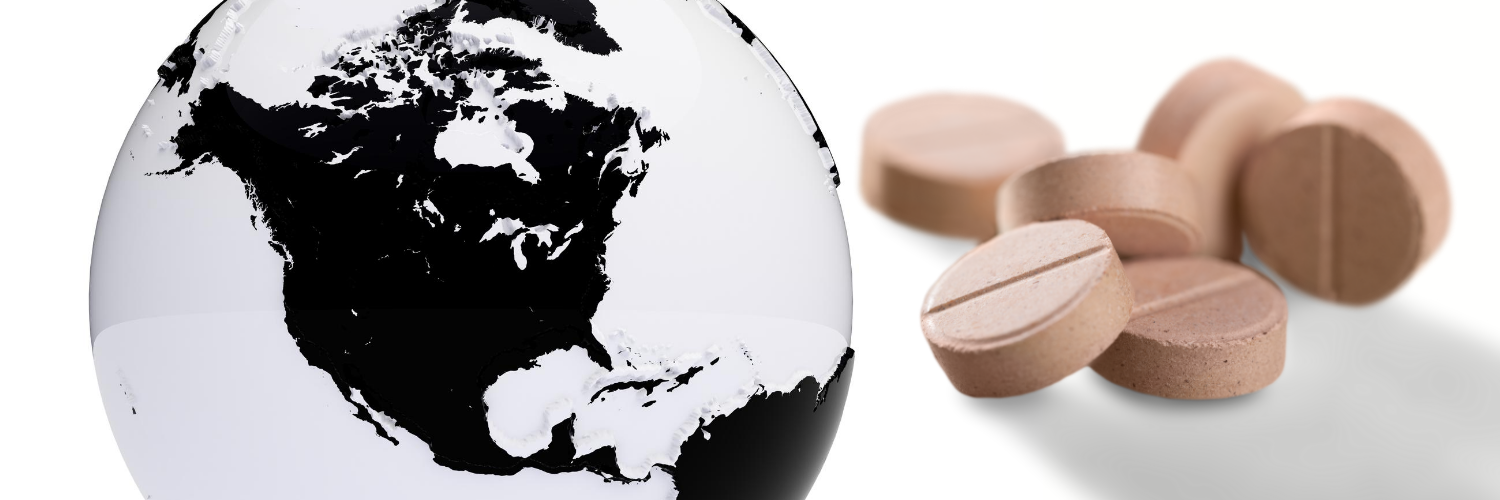Pregnancy & Prescription Medication

Most pregnant people take prescription medication. The CDC estimates that nine out of ten pregnant people take at least one medication. A 2011 study found that the incidence of medication (prescription or otherwise) among those pregnant was at 94%. This incidence appears to be on the rise, too, with the average number of medications taken by pregnant patients increasing by 68% between the 1970s and the 2010s (evidenced by the same 2011 study). Thus, taking medication while pregnant can be very safe, but you must consult your provider if you plan to do so.
You can take medication while pregnant, but certain medications are teratogenic, which means they will affect the developing fetus. Teratogenic medications have consequences ranging from slight behavioral abnormalities to death. Some such medications can still be used under medical guidance, while others are absolutely verboten.
Teratogenic Medications
The following medications can be teratogenic. This is by no means an exhaustive list; if you are taking a medication currently, check with your provider before getting pregnant. Over-the-counter medications will bear warnings if they are known to be teratogenic.
Possibly Teratogenic Medications |
|
| Aspirin | Aspirin may be teratogenic in the final trimester of pregnancy. Talk to your provider if you wish to use it in the first two trimesters; it may be safe then in small doses. The label advises not to use it in the last three months “unless definitely directed to do so by a doctor because it may cause problems in the unborn child or complications during delivery.” Research indicates that low-dose aspirin (85mg, a far cry from the painkiller’s traditional 325mg) may help prevent preeclampsia. (Read more about it over at NPR!) Low-dose aspirin is not a painkiller — it is not strong enough — and tends to be prescribed as a daily blood thinner to prevent heart attack and stroke. |
| Ibuprofen | Our other non-steroidal inflammatory drug (NSAID) ibuprofen follows the same logic: Don’t use it without consulting your doctor in the first two trimesters. It is especially unsafe to use in the final trimester. |
| Retinoids | Retinoids such as isotretinoin (Accutane) and tazarotene (Tazorac) result in fetal embryopathy, a severe abnormality of the fetus. Because these medications are confirmed to harm fetuses, the FDA has protections placed on them to prevent pregnant people from taking them. Accutane, a medication for acne vulgaris, relies on a system called iPledge. iPledge requires Accutane users to use two forms of birth control throughout use. |
| ACE Inhibitors | ACE inhibitors, which treat high blood pressure, can be teratogenic in the second and third trimesters. Recent research indicates they may be harmful in the first trimester as well. As with NSAIDs, talk to your provider if you wish to use them during the first trimester. |
| Warfarin | Warfarin is a well-known teratogen that can result in stillbirth. Warfarin itself is a hazardous medication; it requires routine blood testing to ensure the medication won’t over-thin the blood. (Warfarin is a blood thinner; it prevents blood clots.) If a patient does not take the blood test, or dosage is mislabeled, warfarin can lead to a brain bleed. This alone is not a reason to avoid warfarin, but, during pregnancy, this risk is extended to the fetus itself. |
| Estrogen | In many cases, estrogen is a contraceptive. Most birth control pills contain estrogen, which forces the uterine lining to become too thick to harbor a fetus. Logic says estrogen should be bad for use during pregnancy, too, given that it can affect the uterine lining. This is true! However, most people aren’t trying to take birth control pills during pregnancy. More likely, a medication like Estrace (estradiol), which treats vaginal dryness, would need to be discontinued during gestation. Per its label, early use in the first trimester (possibly before you know you’re pregnant) of Estrace will not harm the fetus. |
| Busulfan | A chemotherapy medication, busulfan (Myleran, Busulfex, etc.) can affect the fetus if either parent is using it. It is especially important to consult your doctor if you are taking this medication and wish to conceive. From the FDA label for Busulfex: “Busulfan was teratogenic in mice, rats, and rabbits. The solvent, DMA, may also cause fetal harm when administered to a pregnant woman based on findings in animals. Advise pregnant women of the potential risk to a fetus. Advise females and males of reproductive potential to use effective contraception during and after treatment with BUSULFEX.” |
This is by no means an exhaustive list. Please talk to your provider before starting a new medication, even if it over-the-counter or extremely low-dose.
What medications are safe during pregnancy?
Given the sheer volume of medications that exist, we cannot offer a comprehensive list of medications that are definitely safe during pregnancy. The National Institute of Health has the following advice:
“Don’t make decisions about medication use during pregnancy based on lists you find online. Instead, use the lists as a starting point to talk with your doctor.”
Many medications are safe to use during pregnancy. For now, look at medications to avoid. Discuss alternatives with your provider, and refer to them if you are interested in taking a new over-the-counter medication.
What is the safest way to take medication during pregnancy?
The safest way to take medication during pregnancy is to consult your doctor frequently. A 2018 study published in the Maternal Health and Child journal found that heavy communication between provider and patient — in this case, facilitated by the provider — could help those who are pregnant make decisions regarding medication. Concludes the study, “This formative research found that women face difficult decisions about medication use during pregnancy and need specific information to help them make decisions. Enhanced communication between patients and their providers regarding medication use would help address this need.”
Which painkiller is best in pregnancy?
Our good friend acetaminophen (Tylenol) is known to be least detrimental to the fetus if used during pregnancy. Other painkillers include ibuprofen (not good!), aspirin (also not good!), and prescription opioids like codeine. Research indicates that late-term use of opioids can result in symptoms of withdrawal in the child. You may use opioids during pregnancy, but, as with all opioid use, with the close supervision of your provider. Read more about taking painkillers during pregnancy here.
What happens if you don't take folic acid during pregnancy?
Folic acid helps develop the neural tube; a healthy neural tube (the fetus’s brain, effectively) prevents brain-related abnormalities at birthday, like spina bifida. The CDC recommends that all people of childbearing age take 400mg of folic acid per day. Not considering a baby anytime soon? The CDC says you should still take the folic acid. Most pregnancies are unplanned!





